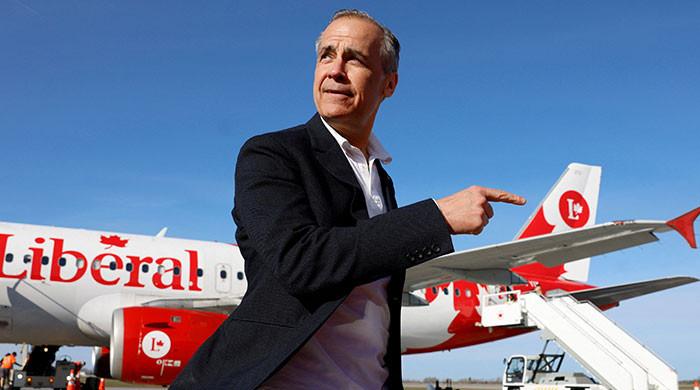Ottawa: Canadian Prime Minister Mark Carney secured an important political victory on Monday after his liberal party won Canada’s election.
Carney, who has a history of taking on roles in challenging moments, secured a period as prime minister despite never serving in parliament, which is unprecedented in Canadian history.
“I’m most useful in a crisis. I’m not so good at peacetime,” he said during the campaign.
Carney secured a period as prime minister despite never serving in parliament, which is unprecedented in Canadian history.
Even without any state experience, he convinced voters that his background of dealing with financial turmoil equipped him to lead Canada through US President Donald Trump’s trade war.
A 60-year-old married father of four, Carney was born near the Arctic in Fort Smith, in Canada’s northwestern territories, but was raised in the western city of Edmonton.
Like many Canadians, he played hockey in his youth. He studied in Harvard, USA and Oxford, England and made a fortune as an investment banker early in his career in Goldman Sachs and worked in New York, London, Tokyo and Toronto.
Carney then joined the Canadian civil service and was eventually appointed Governor of the Bank of Canada in 2008 by former Prime Minister Stephen Harper, a conservative.
The global financial crisis broke out shortly thereafter, and Carney was among a group of leaders who were credited with the control of Canada through an international degradation relatively unharmed.
In 2013, then-British Prime Minister David Cameron knocked him to lead Bank of England, making Carney the first non-Briton to lead the institution since its founding in 1694.
The United Kingdom then voted to leave the European Union, and Carney played a key role in reassuring the markets after the Brexit vote in 2016.
When the Canadian announced that he was leaving the bank in late 2019, Britain’s then Finance Minister Sajid Javid said Carney had led “with conviction, rigor and intelligence.”
In a recent performance on a Canadian comedy show, the host – with a list of the financial crisis, Brexit and Trump’s trade war joked – possibly blamed for the economic upheaval that tracks him.
When he laughs, Carney said, “It’s the other way around. I come in to fix these things.”
Isolated stumbling
Reporting that Carney had an interest in entering Canadian politics has been circulating for years.
In January, after the then Prime Minister Justin Trudeau announced his plans to resign, Carney launched a campaign to lead the liberal party.
Analysts questioned whether a technocrat without experience with retail policy could provide energy to a party facing bleak voting as anger towards Trudeau rose after a decade in power.
Dalhousie University professor Lori Turnbull has noticed that Carney “doesn’t have a dynamic communication style.”
And yet, he continued to win the Liberal Party Race and the People’s Elector.
Carney had isolated stumbles during the campaign, but experts said his most effective moments were them when he assumed the role of prime minister and attacked Trump in front of a series of Canadian flags.
“The old relationship we had with the United States, based on the elaboration of integration of our economies and tight security and military cooperation, is over,” Carney said last month after Trump revealed his auto tariffs.
Personal wealth – an affected subject
After leaving Bank of England, Carney wrote a book and became the UN advisor for climate change and financing.
He also returned to the private sector as chairman of Brookfield Asset Management, a large multinational Canadian company.
Carney was facing tough questions about his experience in the private sector, including every role he played in helping Brookfield reducing his Canadian tax burden.
He also had excited exchanges with journalists when asked about his personal wealth.
Carney was pressed to reveal his assets, including what shares he had, so voters could judge whether he was facing any conflicts as prime minister.
He opposed that he put all his assets in a blind confidence and complied with Canada’s ethical rules.
“Look inside yourself,” he said to a reporter who pressed him last month on his decision not to pass on his assets.
“You start from a prior conflict and sick will,” he accused.
“I’ve been up for Canada. I’ve left my roles in the private sector at a time of crisis for our country.”



